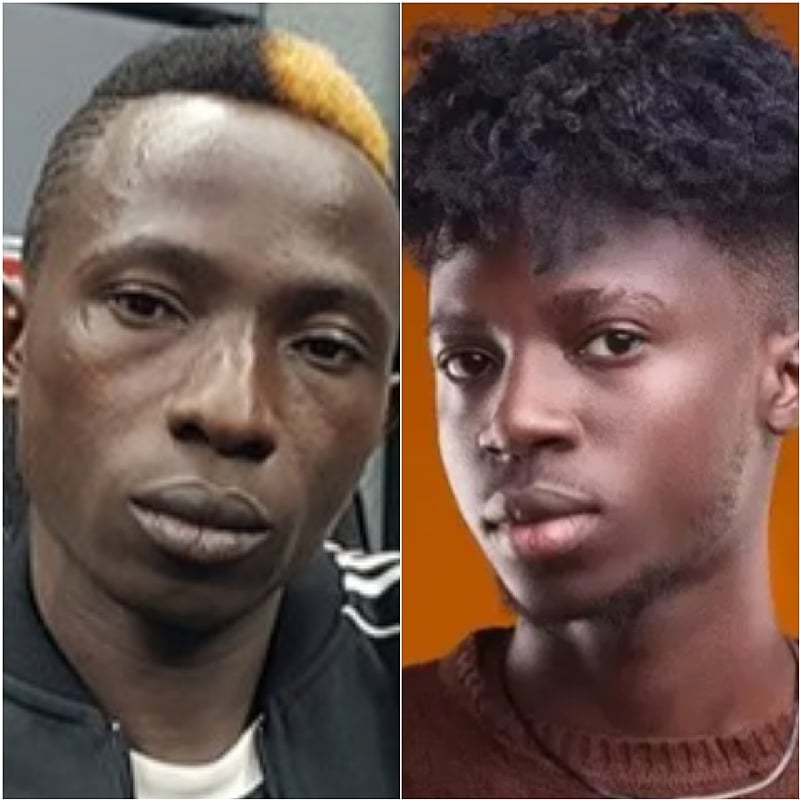Yaw Darling’s Controversial Comparison and the Call for Apology
The Ghanaian music scene was recently stirred by a comment made by emerging artist Yaw Darling, winner of the TGMA Unsung category. In an interview on MX24, Darling expressed his preference to be compared with the established artist Kuami Eugene rather than Patapaa, another well-known figure in the industry. This statement sparked controversy, particularly drawing the attention of media personality and artist manager Samuel Atuobi Baah, popularly known as Sammy Flex. Flex publicly advised Darling’s management to encourage him to apologize to Patapaa for the perceived slight.
Flex argued that Darling’s comment was unnecessary and potentially disrespectful to Patapaa’s contributions to the music industry. While acknowledging Patapaa’s sometimes polarizing image, Flex emphasized that he has undoubtedly made a mark. He pointed out the unpredictable nature of the music business, suggesting that Darling, as a newcomer, should exercise caution and respect towards those who have already achieved a level of recognition. Flex stopped short of demanding an apology but strongly suggested that it would be a beneficial move for the young artist.
The Significance of the Incident and the Dynamics of the Music Industry
This incident highlights several significant aspects of the music industry, particularly within the Ghanaian context. First, it underscores the sensitivity surrounding comparisons between artists. Such comparisons can be perceived as hierarchical, implying a judgment of value or talent. In a competitive field like music, where artists constantly strive for recognition and differentiation, seemingly innocuous comparisons can carry significant weight.
Second, the incident reveals the role of industry figures like Sammy Flex in shaping public discourse and influencing artists’ careers. Flex’s public statement effectively amplified the controversy, putting pressure on Yaw Darling and his management. This demonstrates the power dynamics within the industry, where established figures can significantly impact the trajectory of emerging artists.
Third, the situation reflects the broader cultural context within which Ghanaian music operates. Respect for seniority and established figures is often highly valued. Darling’s comment, regardless of his intention, could be interpreted as a breach of this cultural norm, further fueling the controversy.
Patapaa’s Position and the Potential Impact on Yaw Darling
Patapaa himself has not publicly responded to Darling’s comment or the subsequent call for an apology. This silence adds another layer of complexity to the situation. Whether he chooses to address the issue or remain silent will likely have further implications for both artists. If Patapaa accepts an apology, it could help diffuse the situation and potentially even foster a positive interaction between the two artists. Conversely, if he expresses displeasure or ignores the issue, it could prolong the controversy and negatively impact Darling’s public image.
For Yaw Darling, the incident presents a significant challenge early in his career. While the attention might offer some short-term publicity, the negative connotations associated with disrespecting a more established artist could hinder his long-term prospects. How he chooses to navigate this situation – whether by issuing an apology, clarifying his statement, or remaining silent – will likely play a crucial role in shaping public perception and his future within the industry.
The Broader Implications for Emerging Artists
This incident serves as a learning opportunity for other emerging artists. It highlights the importance of carefully considering public statements, particularly when discussing other artists. Developing a respectful and professional demeanor, especially towards more established figures, can be crucial for building a sustainable career in the music industry. Learning from this incident, emerging artists can prioritize building positive relationships and avoid unnecessary controversies that could jeopardize their future prospects.
The Future of the Controversy and the Potential for Reconciliation
The future of this controversy remains uncertain. Whether Yaw Darling will issue an apology, and if Patapaa will respond, are yet to be seen. However, this incident has already sparked important conversations about respect, hierarchy, and the dynamics of the Ghanaian music industry. It underscores the need for thoughtful communication and the potential consequences of seemingly innocuous comments, particularly in a highly competitive and interconnected field like music. The ideal outcome would involve a reconciliation between the two artists, promoting a culture of mutual respect and support within the Ghanaian music scene. This incident, despite its negative aspects, could ultimately serve as a catalyst for positive growth and development within the industry.














